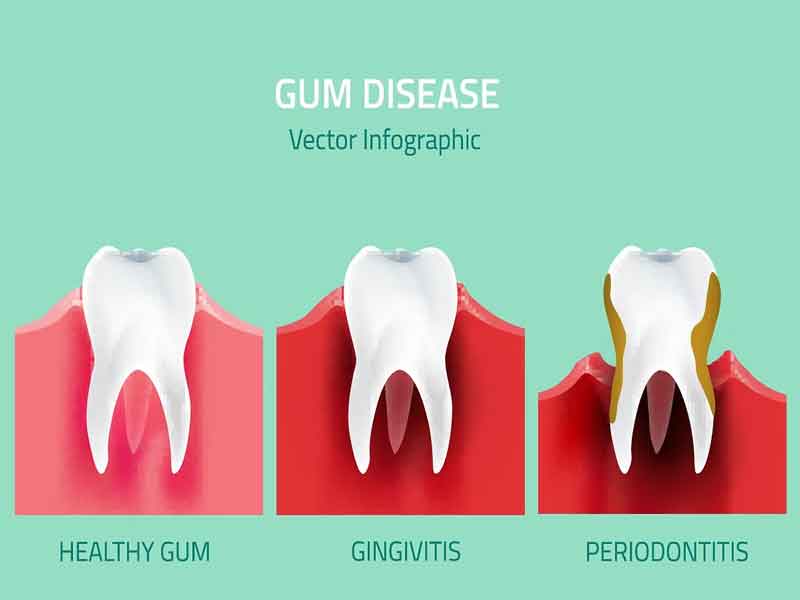The Link Between Gum Disease and Heart Disease

One would assume that the mouth and heart don’t have much in common. However, accumulating evidence suggests that the mouth and heart are closely linked. Researchers suspect that bacteria present in gum disease can travel throughout the body, triggering inflammation in the heart’s vessels and infection in the heart’s valves. From referencing an interesting study by the Centers for Disease Control and Prevention, it was discovered that nearly half of American adults aged 30 and older and 70 percent of those 65 and older have some stage of gum disease. Let’s look more into each of these potential risks of gum disease.
Research suggests that there is a link between gum disease and inflammation that can later lead to heart attacks, strokes, and sudden vascular events. However, currently there isn’t a clearly defined relationship between the cause-and-effect nature of mouth health and heart disease. This is due to the fact that inflammation can be linked to many different reasons and sources so its hard to pinpoint the root cause at times. For people with heart disease and blood vessels, inflammation caused by gum disease can only add to the process. The risk only gets higher when one experiences high cholesterol at all. Researchers have uncovered oral bacteria in the fatty deposits of people with atherosclerosis, a disease in which plaque builds up in the arteries. Untreated, those deposits can negatively affect the arteries, break loose, or clog them which can lead to heart attack or stroke.
Also, people with heart valve disease are prone to gum disease. The bacteria that lives in your mouth when you have gum disease can cross into your bloodstream, enter the heart, and directly infect the vulnerable heart valves. If an infection enters the bloodstream, one needs to seek immediate help from a cardiologist. In order to prevent gum disease, one needs to go to regular dental cleanings and floss at least twice a day.

